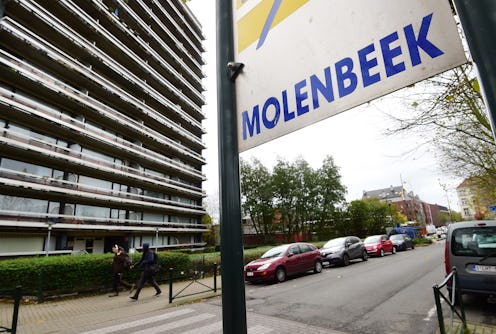Molenbeek is a suburb of Brussels, but Friday's Paris attacks have cast a dark shadow over the Belgian neighborhood. One of the suspects behind the attacks, which left at least 129 people dead, was arrested in Molenbeek, and it's not the first time the neighborhood has been linked to terrorism. The neighborhood, which has a substantial Muslim population, "has become one of the world's main breeding grounds of violent Islamist extremists," according to Steven Mufson in The Washington Post.
Following the Paris attacks, Belgian police began a new raid in Molenbeek shortly before noon Monday, though the exact reason behind the search was not immediately known. Early reports said the raid may be tied to the massive manhunt for Salah Abdeslam, a French national suspected of being the eighth man behind the attacks. But CNN later reported that the raid failed to capture the suspected terrorist.
The neighborhood was also raided late Saturday evening into the next day. The alleged attackers used a Belgian car which led authorities to Molenbeek. On Sunday morning, Belgian Prime Minister Charles Michel said that "there is almost always a link with Molenbeek" in terrorism cases. Michel said that "there needs to be more repression" in Molenbeek, and he committed to having Belgium's government do more to prevent tragedies like Friday's. A spokesperson for Belgium's federal prosecutor told CNN Sunday that two of the suspects behind the Paris attacks were French citizens living in Molenbeek.
According to CNN, Belgium, through Molenbeek, has exported the largest number of jihadists to ISIS in Syria, when compared with other European countries. About 440 Belgians have become jihadists, which is roughly double the number from France, and about four times as many as from the United Kingdom. Suspects in the Paris attacks on satirical magazine Charlie Hebdo have been linked to Belgium. And in January, police in Belgium thwarted a terrorist attack planned by suspected terror cell members who were from Molenbeek.
In an appearance on Belgium's VRT television channel Sunday, Jan Jambon, Belgium's Minister of Home Affairs, said that the Belgian government doesn't have "control of the situation in Molenbeek." Authorities are still engaged in a manhunt for one of the suspects behind Friday's Paris attacks.
Still, it's important to remember that the people behind the Paris attacks represent a small minority, and Molenbeek as a community is filled with plenty of good people. As Michel noted, the repression of terrorist attacks is essential, but the portrayal of a largely Muslim community as inherently dangerous isn't helping anyone. Let's hope that France and Belgium can crack down on Molenbeek's links to terrorism without sacrificing the neighborhood's thriving culture.
